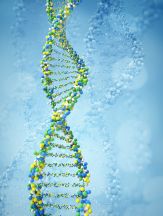 The situation is terrifying. A seemingly healthy person suddenly collapses – unconscious – and tragically dies from cardiac arrest. Family members in their grief ask “Why?” and maybe even “Can it happen to us too?”
The situation is terrifying. A seemingly healthy person suddenly collapses – unconscious – and tragically dies from cardiac arrest. Family members in their grief ask “Why?” and maybe even “Can it happen to us too?”
A pilot project between the University of Wisconsin Collaborative Genomics Core (UWCGC) and University of Wisconsin Hospital and Clinics (UWHC) Autopsy Services hopes to provide some answers.
The pilot project allows family members of people who pass away from suspected sudden cardiac deaths to have genetic testing performed on specimens from their deceased loved one, either as part of an autopsy at UWHC or just the testing alone. The test panel, performed by the UW Collaborative Genomics Core, is free of charge and looks for specific genetic markers related to sudden cardiac death.
Family members will receive the results of the testing from their designated healthcare provider. Genetic testing may identify inherited cardiac disease in 25-30% of these individuals. This provides the family an opportunity for closure, and also allows family members the option to be tested for the identified, and often treatable, genetic condition.
The goal is to identify gene variants related to sudden cardiac death in affected individuals to aid in diagnosis of at-risk family members who can then be connected with appropriate medical management.
“From one person who tragically dies, we can potentially help many people who might also be affected by hidden cardiac conditions,” said Jennifer Laffin, PhD FACMG, director of cytogenetics and molecular genetics within the UWCGC, director of UW Cytogenetics and Molecular Genetics at the Wisconsin State Laboratory of Hygiene (WSLH) and UW associate professor of Pediatrics. “We are hoping to significantly reduce sudden cardiac death in Wisconsin.”
The idea for the pilot project came from Kate Orland, MS CGC, a genetic counselor in the UW Department of Medicine’s Division of Cardiovascular Medicine. The team worked with Erin Brooks, MD, a UWHC pathologist and UW associate professor of Pathology and Laboratory Medicine, and WSLH Genetic Counselor Kimberly Anderson, MS CGC, to develop workflows and patient/provider tools to accomplish the testing.
“Although rare, sudden cardiac death in a young person (<40 years of age) does occur, leaving relatives in shock and eager to find an explanation,” Orland explained. “Genetic testing is sometimes the only tool available to determine the cause of death, particularly in the case of inherited arrhythmia conditions, which have little to no evidence on an autopsy. Moreover, it is difficult to obtain insurance coverage for postmortem genetic testing. The opportunity to offer testing to grieving families is not only a tremendous service; it can potentially provide critical risk assessment information for the living relatives, who could have a 50% chance of sharing the genetic variant.”
It’s expected that there will be about five cases of sudden cardiac death per year who will be tested as part of the pilot.
Family members also can have their loved one’s specimens banked at the WSLH DNA Bank for future testing.
“Although this testing won’t bring back their loved one, it can hopefully offer some insight into why they may have passed away and provide information to the surviving family members to help manage their health, if needed,” said Dr. Laffin.
